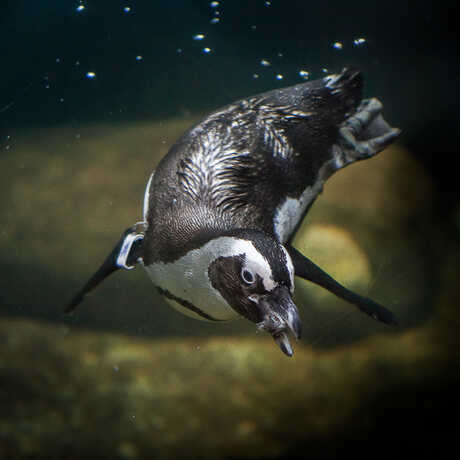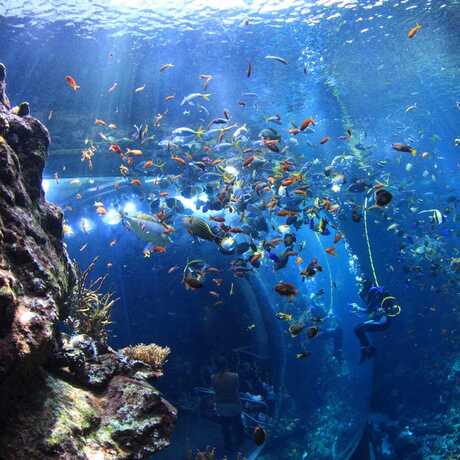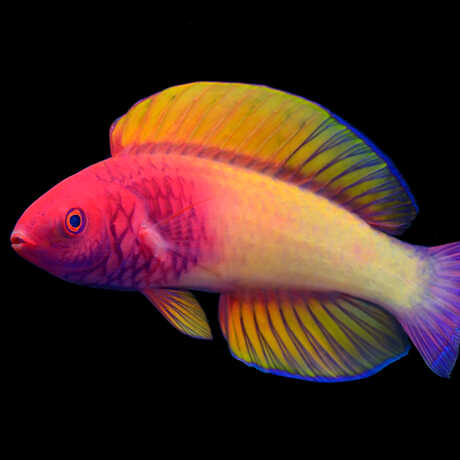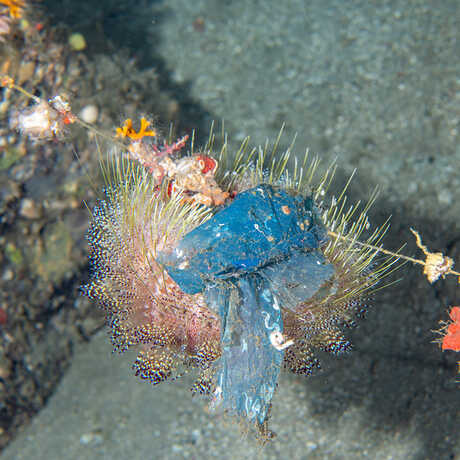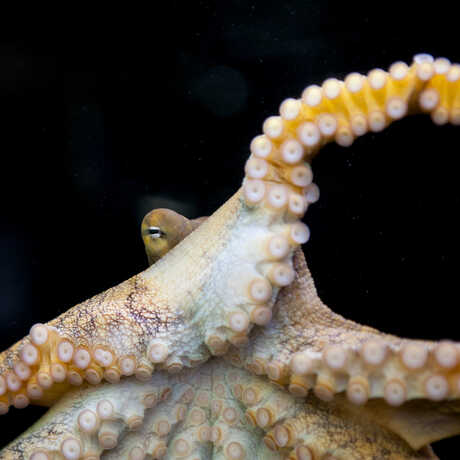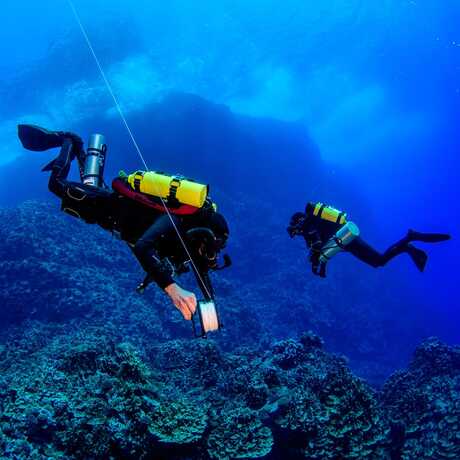Meet a colorful cast of dozens of deep-dwelling fish and invertebrates, including candy-colored anthias, otherworldly corals, and a damselfish so recently discovered it doesn’t yet have a name. Play our Twilight Zone Explorer game to see if you can safely collect specimens at depth.
Rose-veiled fairy wrasse photo: © Yi-Kai Tea








